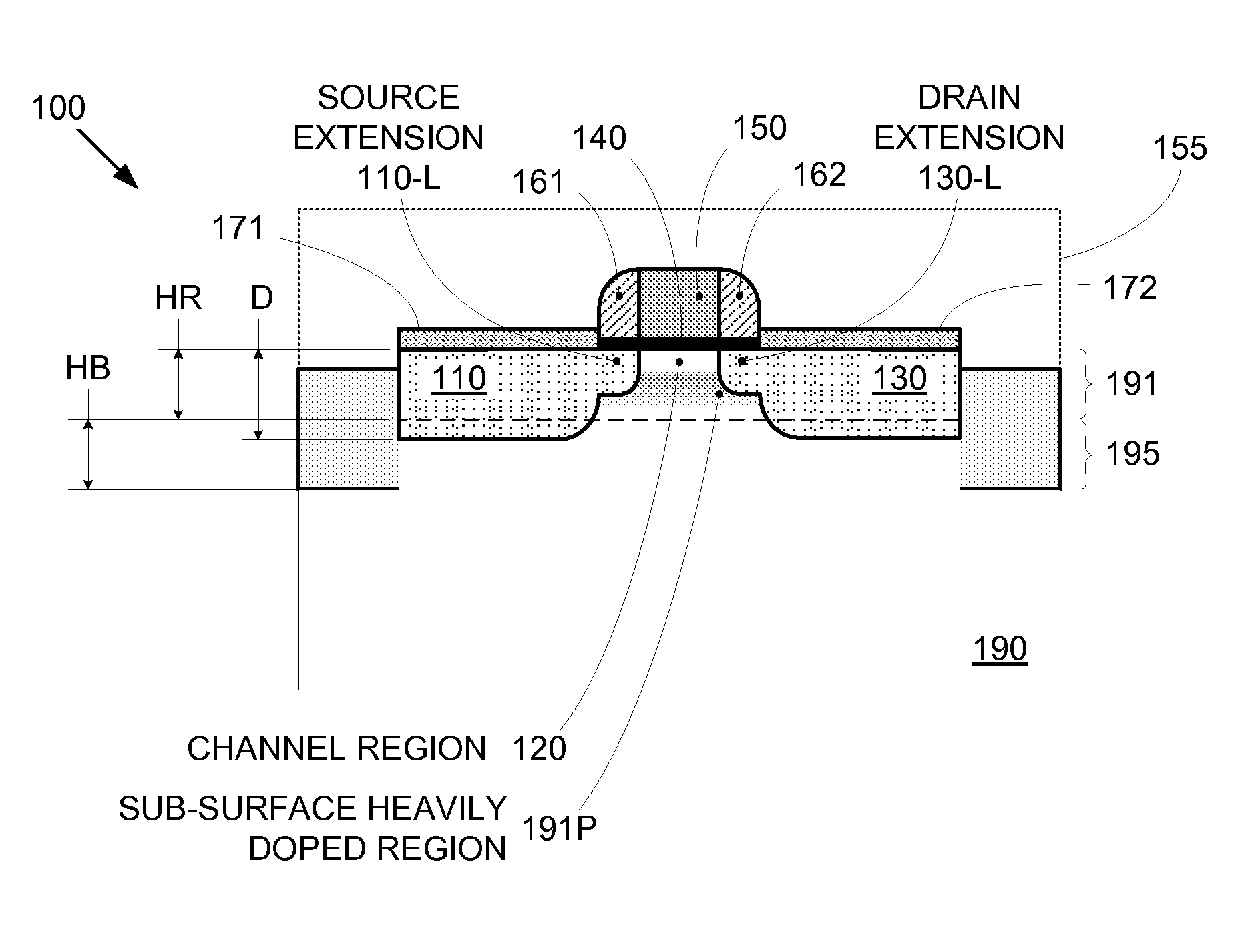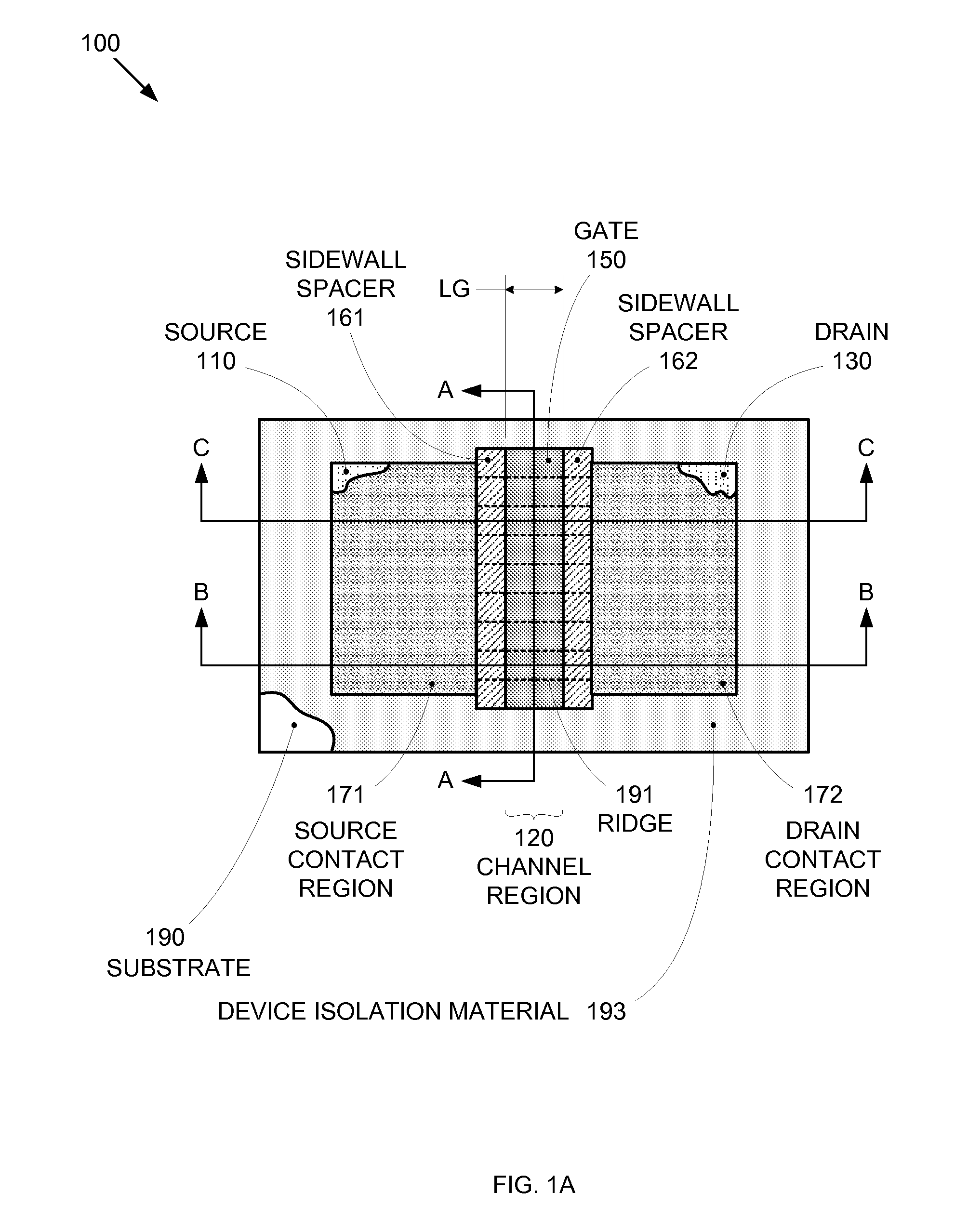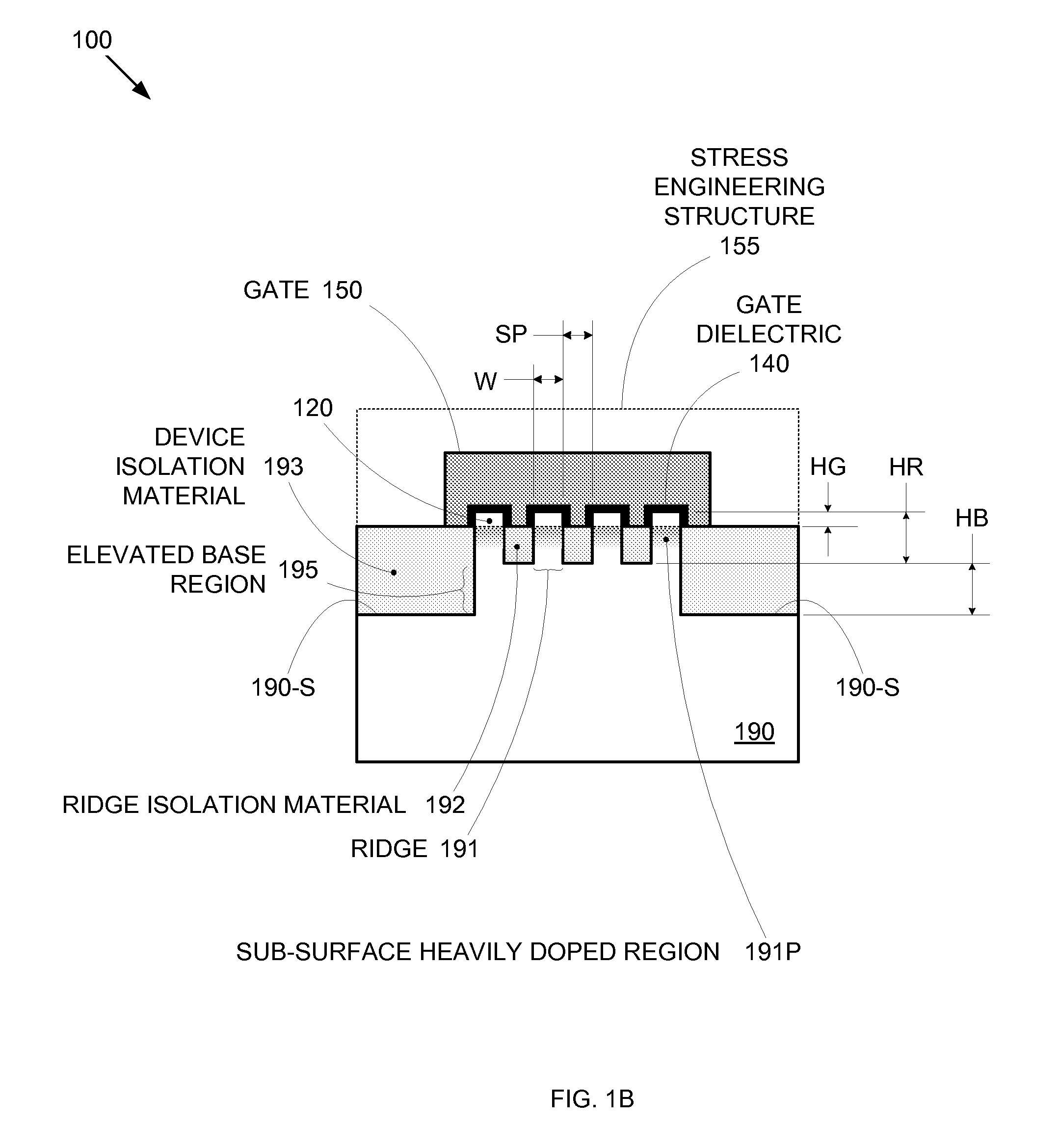Sequential Selective Epitaxial Growth
- Summary
- Abstract
- Description
- Claims
- Application Information
AI Technical Summary
Benefits of technology
Problems solved by technology
Method used
Image
Examples
Embodiment Construction
[0025] Conventional metal-oxide-semiconductor field effect transistor (MOSFET) designs face significant problems as those designs are scaled down to improve the cost and performance of integrated circuits (ICs). In particular, the techniques used to reduce static power consumption by minimizing source-to-drain leakage current (e.g., increased channel doping, decreased gate-dielectric thickness, decreased source and drain junction depths) tend to also decrease transistor performance by decreasing on-current. By forming MOSFETs over a substrate having precisely-formed stripes (ridges of semiconductor material(s)), both high performance (i.e., high on-current) and low static power consumption (i.e., low source-to-drain leakage current) can be achieved with good uniformity. The stripes enable the formation of segmented channel regions that accommodate a wide range of gate-electrode configuration options and also provide greater performance consistency between devices.
[0026]FIG. 1A show...
PUM
 Login to View More
Login to View More Abstract
Description
Claims
Application Information
 Login to View More
Login to View More - R&D
- Intellectual Property
- Life Sciences
- Materials
- Tech Scout
- Unparalleled Data Quality
- Higher Quality Content
- 60% Fewer Hallucinations
Browse by: Latest US Patents, China's latest patents, Technical Efficacy Thesaurus, Application Domain, Technology Topic, Popular Technical Reports.
© 2025 PatSnap. All rights reserved.Legal|Privacy policy|Modern Slavery Act Transparency Statement|Sitemap|About US| Contact US: help@patsnap.com



